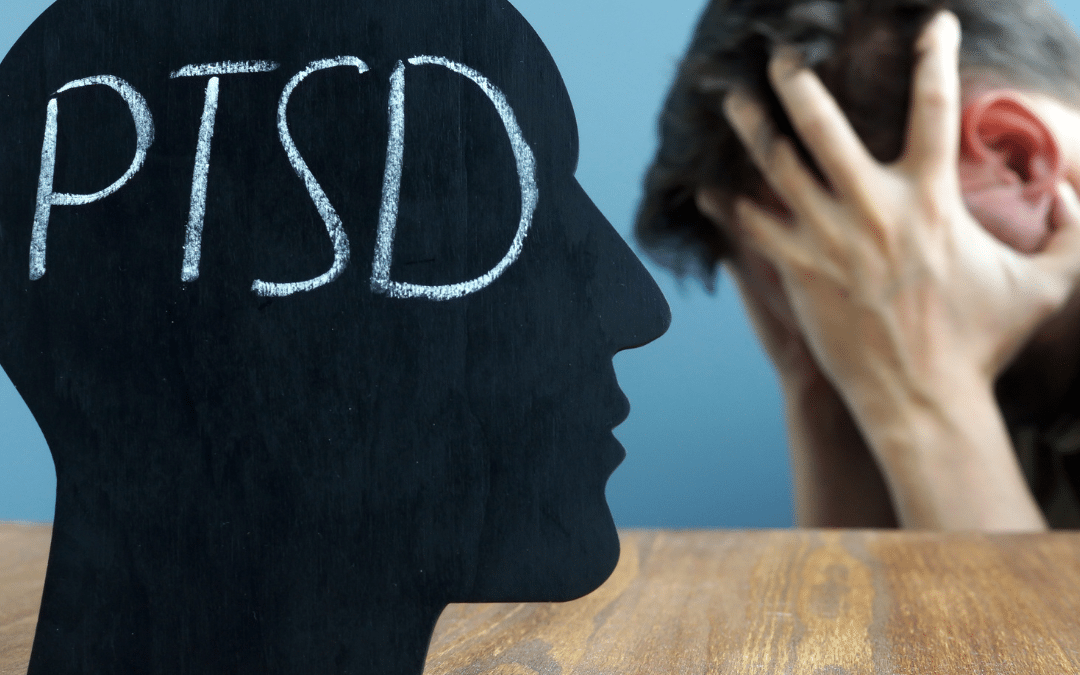Hypnosis for Overcoming PTSD

Hypnotherapy Can Help Your Anxiety
November 8, 2023
Love and Phobias: Hypnotherapy’s Role
February 13, 2024As many people enter the new year, they often begin to make a list of resolutions and ways to better themselves in the new year. While waking up earlier or participating in dry January may be good options, some deeper goals can be met through hypnosis for PTSD or other challenges.
Post-traumatic Stress Disorder, better known as PTSD, is a mental health condition that can develop after someone experiences a traumatic event. More common than you think, it’s estimated that one in 11 people will be diagnosed with PTSD in their lifetime. PTSD is commonly related to those who serve in the military but PTSD can occur from many different traumatic events. Hypnotherapy can play a role in helping alleviate some of the common symptoms associated with PTSD putting you on a better track for the rest of the year. Keep reading to learn more.
What are the Common Symptoms of PTSD?
PTSD can affect the human body in a variety of ways and symptoms are usually grouped into four types:
1. Intrusive Memories
Intrusive memories can include recurring, unwanted memories of the traumatic event, upsetting dreams or nightmares, or severe emotional distress.
2. Avoidance
Just as it sounds, symptoms of avoidance include avoiding places, activities, thoughts, and people that might remind someone of the traumatic event.
3. Negative changes in thinking and mood
This symptom includes negative thoughts about yourself, others, or the world, difficulty recalling traumatic events, lack of interest in everyday activities or hobbies, and feeling emotionally numb.
4. Changes in physical and emotional reactions
Changes in physical and emotional reactions cover everything from negative thoughts about yourself and the future to being easily startled, having issues sleeping, or other negative emotional states. PTSD can take many forms and the intensity of the symptoms can vary as well.
How Can Hypnosis for PTSD Help?
Just as PTSD can have different symptoms, it can have different ways of alleviation too. PTSD hypnosis is an effective tool to help you heal your mind and body and reclaim your life.
Hypnosis is a natural and altered state of consciousness in which a heightened state of awareness and responsiveness is experienced. Through hypnotherapy, patients have the opportunity to identify original traumas and resulting triggers associated with PTSD symptoms. Hypnotherapy is used to alleviate anxiety, overcome fear and phobias, increase confidence, and improve your sleep, all of which can be used to help work through ailments caused by PTSD.
During an average hypnotherapy session, patients can expect to visit with a hypnotherapist for a little over an hour. In my sessions, I usually start with a history intake to get to know the patient better to set us both up for success. Following the history intake, I work on a treatment plan with the client before beginning the first actual session of hypnosis. It’s important to know that patients are aware of what is happening during hypnosis. Keeping my patients comfortable is my main priority, especially when seeing those with PTSD. Once the first session is complete, we can better assess your initial progress and discuss the game plan for future sessions. If your PTSD involves multiple events, it may work best to break out sessions to address each individual trauma. Working with you to clearly define a course of treatment and path of healing is important to me.
How Effective is Hypnosis for PTSD?
Certain studies have shown hypnotherapy to be helpful in the treatment of trauma symptoms, as well as post-traumatic stress disorder (PTSD), in some instances. A meta-analysis of six studies on hypnotherapy found that hypnotherapy significantly reduced participants’ PTSD symptoms of intrusion and avoidance. Regardless of the nature of the trauma, participants who received hypnotherapy experienced a reduction in their symptoms.
Hypnotherapists may help shift patients’ feelings or beliefs to better manage certain symptoms of trauma. Certain techniques common in hypnotherapy show more benefit to PTSD patients than others. Those techniques include relaxation, identifying triggers that have gone unnoticed, reframing memories by bringing in a new perspective, and anchoring resource states that replace triggers with anchors of feeling confident, safe, or in control.
How Kelly Has Helped Several Clients Through Hypnotherapy for PTSD
1. Nicole’s Journey to Inner Peace
Nicole has been dealing with PTSD, depression, and anxiety. After just one session with Kelly, she found immediate relief. Her mind, usually filled with constant thoughts, became calm, and she felt a significant emotional burden lifted.
2. Gracie’s Path to Healing through Hypnotherapy
Through hypnotherapy, Gracie gained self-assurance and successfully worked through trauma. In Gracie’s words, “Kelly is absolutely amazing! Hypnotherapy has changed my life. It has made me more self-assured and helped me overcome trauma.”
3. Larry’s Success with Hypnosis for PTSD
Larry had problems with PTSD. With hypnosis for PTSD under Kelly’s guidance for managing PTSD, Larry overcame depression, anxiety, and stress. Grateful for the effective help he received, Larry emphasizes how hypnosis proved more successful than other treatments and medications he had previously tried. Larry says “I tried other treatments and medications that did not work. Hypnosis works. Hypnosis is effective for a variety of issues. It was effective in helping me with depression, anxiety, and stress issues. Kelly is skilled in hypnotherapy and I recommend her.”
See more success stories here.
HypnoKelly Offers Hypnotherapy Sessions Catered to PTSD
If you’ve made it this far in the article, welcome! I hope this blog offers you some useful information on PTSD and the benefits of treatment through hypnotherapy. My name is Kelly and I have been a practicing hypnotherapist in the Kansas City area for over 20 years. I have worked with many clients suffering from PTSD who have found relief from the horrid symptoms through hypnotherapy. It’s the new year, so why not add healing from within to your New Year’s resolution? If you are interested in learning more about my practice or how hypnotherapy could benefit you, please reach out to me. I would be more than happy to answer your questions over the phone or over a message. and schedule your very first hypnotherapy appointment.




